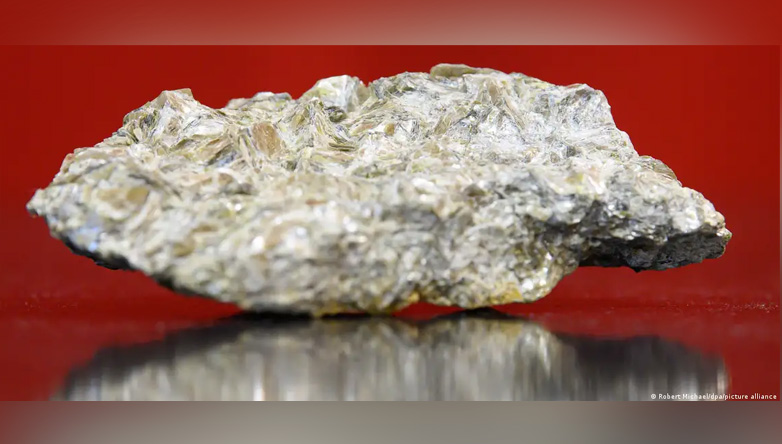
Šinovec, a small village located on the Czech-German border, about 100 kilometers northwest of Prague, stands on a treasure trove. In the subsurface of this area there are approximately 3-5% of the world’s lithium reserves. This is the largest deposit in Europe, comments the German press.
In recent years, light metal has gained tremendous importance. It is used, among other things, to produce batteries, making lithium essential for the energy transition and the development of electric mobility. Today the prices of these raw materials are particularly high and their mining is profitable. That’s why lithium mining could change everything for the Czech Republic.
According to an analysis by the Czech Chamber of Commerce, the country has exhausted all remaining sources of growth. Therefore, it is threatened by economic stagnation in the coming years. However, lithium mining could give new impetus to the Czech economy, hopes Prime Minister Petr Fiala, who is encouraging strategic investment in lithium mining and treating it as a focus of the country’s development.
“Lithium is a key raw material for electricity and energy storage. That is why we are working to start mining as soon as possible, ideally in 2026,” Fiala said.
1,000,000 lithium batteries per year
The village of Tsinovets is located in the center of the mining area. Ore was mined there as early as the 13th century, and in 1940 tungsten and tin mining began. Initial investigations in 2010 indicated that the amounts of lithium were significant. There and on the other side of the German-Czech border, in Seenwald, where a smaller part of the reserves are located. The Czech Republic has already signed an agreement with the state of Saxony for possible cooperation in the field of lithium mining. On the Czech side, the state-controlled Czech Energy Works (CEZ) will do the mining.
Studies indicate that 2.25 million tons of ore can be extracted annually, and lithium hydroxide production reaches approximately 30 thousand tons. This quantity, in turn, will be sufficient to produce approximately one million lithium batteries.
The Czech Republic wants to produce batteries itself in a giant factory that is still in the planning stage. “We can cover everything, mining, processing, battery production, chip production, and even the final production of cars,” Prime Minister Fiala said.
Lithium mining area instead of coal?
The Ústí region is one of the poorest regions in the Czech Republic. The end of coal mining, which had employed thousands of local people since the 1990s, has left behind major structural problems. In addition, the landscape was “damaged” by mining and more than 100 settlements were destroyed.
It is estimated that thousands of miners will be employed during the 25-year lithium mining period, while the plan to build the battery plant will also bring new jobs and income to the region. The region supports lithium mining, provided it is as environmentally friendly as possible.
“I see the possibility of lithium extraction as an opportunity,” says Jan Schiller, a regional governor and member of the opposition Anu party. “However, a lot depends on the legal framework that we will negotiate before mining begins. We still have vivid memories of the consequences of coal mining. Any deterioration in the living conditions of communities must be adequately compensated.”
Are new horizons opening up?
The Oosti region is financed by the European Union Fund for Just Transition. To stop coal mining and reshape the local economy. Part of this money will now be spent on exploiting lithium deposits. However, some experts warn that after lignite mining declines, money must be invested in education and restructuring the economy more generally.
Many citizens hold a similar point of view. For example, Michal Koletscu, a professor at Jan Evangelista Borken University in Ústí nad Labem, is an opponent of lithium mining. “If we want to change the region and ensure a different future, we have to choose fundamental change. We need to focus on sectors that have development potential and not only ensure an economic future for the region, but also change the social composition and educational level of the population.”
Concerns about environmental consequences
Chinovic residents are divided. At a recent discussion between citizens and representatives of the European Economic Area in the nearby city of Dube, the hall that hosted the event was stuffily full. Many residents worry that the plans will jeopardize water supplies and worsen air quality, especially during the transport of raw materials.
Like all mining operations, lithium mining has an impact on the environment. In South America, where about 70% of the world’s lithium reserves are located in the so-called “lithium triangle” between Bolivia, Chile and Argentina, groundwater levels have fallen sharply in some places due to the pumping of salt water containing lithium. In some areas, water, soil and air are polluted.
The licensing process for lithium mining is scheduled to begin at the end of 2023. However, CEZ does not seem to have many doubts about the outcome of the case: it has already purchased a plot of land to build lithium processing facilities, and paid for it. One billion Czech crowns – approximately 40.8 million euros.
Source: Deutsche Welle

“Hipster-friendly coffee fanatic. Subtly charming bacon advocate. Friend of animals everywhere.”





More Stories
F-16 crashes in Ukraine – pilot dies due to his own error
Namibia plans to kill more than 700 wild animals to feed starving population
Endurance test for EU-Turkey relations and Ankara with Greece and Cyprus